Cannabidiol (CBD) is a non-psychoactive compound from the cannabis plant. Even if it doesn’t get you high,CBD does have a wide range of amazing health benefits.
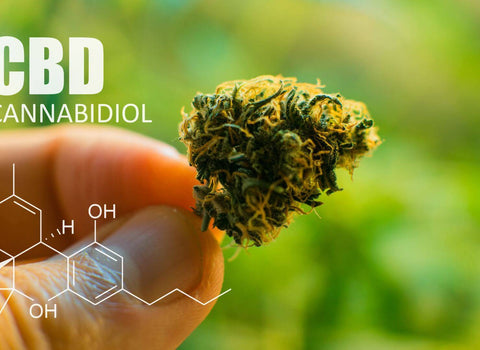
What is CBD?
CBD stands for cannabidiol, a chemical found in both hemp and marijuana plants. While there are hundreds of components in these two plants, CBD is one of the most known of these. It’s a non-psychoactive compound that can relieve pain, improve sleep, promote relaxation, and much more.
How does CBD Work?
CBD works with our endocannabinoid system, which has receptors that help us regulate parts of our bodies’ functionality like our mood, memory, immune responses, and even our appetites. CBD interacts with these receptors to help the central nervous and immune systems run more smoothly. It slows the breakdown of endocannabinoids that are naturally within your body, so it can continue creating an efficient balance throughout. CBD can impact our dopamine and serotonin levels, as well.
Does CBD Get You High?
No, CBD does not make users feel high. Since it does not produce psychoactive effects—in contrast to THC—CBD generally exerts a relaxing and calming influence on users. While it does enhance or calm certain sensations throughout the body, CBD cannot get you stoned. Even if CBD products contain small amounts of THC, you are extremely unlikely to experience any mind-altering effects.
That’s why many canna-enthusiasts choose to do their research on broad spectrum CBD gummies. They’re suited for any time use because you won’t feel high and are typically free of THC.
How Do You Take CBD?
Now that the use of cannabis products are becoming more widely accepted, the possibilities for how you consume CBD is expanding, too. Most people who think of cannabis will probably think of smoking marijuana, but, thankfully, we’re moving toward more healthy ways to consume it.
Full spectrum CBD gummies are probably the most common, as edibles took the rise in the cannabis industry for some time now. However, edibles are not the only way to get your daily dose of CBD. Cannabis users are now looking to tinctures, capsules, topics, and even CBD sleep drops to meet their needs.
The important thing is to be knowledgeable about the products you’re using to be sure they’re clean and regulated. Like Nama CBD, whose products are 100% hemp-derived in accordance with the 2018 Farm Bill, are lab tested, non-GMO, and vegan.
How Much CBD Should You Take?
Everyone’s body is different, and how much CBD you should take depends on numerous things. If you’ve never used a CBD product before, it’s always best to start with low doses. You can start off with as little as 50 mg a day or less to see how your body responds to CBD. Experienced users report using around 500 mg of CBD or more.
Using CBD is very individualized, and when you’re just dipping your toes in the water, you don’t want to be too bold. Read the labels on the products you’re buying to get clear on the dose you’re consuming. Keep track of how much you take, and how often, along with regulating your feelings after. You may want to increase or decrease your dose over time.
What are the Benefits of CBD?
The benefits of using CBD are plentiful and people use CBD for lots of different reasons. Whether you’re looking to reduce inflammation or get a good night’s sleep, CBD is a multipurpose compound that can help you. It’s an alternative therapy option like no other. People report experiencing benefits for a variety of conditions, from Parkinson’s Disease to nerve pain to carpal tunnel syndrome.
CBD and Anxiety
CBD has been known to help with reducing anxiety. Patients with PTSD have reported using cannabis to help them calm their running thoughts and ease anxiety. People experiencing panic disorders, social disorders, and other challenges with anxiety and depression use CBD to regulate their emotions. CBD interacts with the receptors in our brain’s amygdala (the part that controls our emotional experiences), ensuring that these receptors don’t get blocked to increase anxiety.
CBD and Epilepsy
Some of the earliest studies were done on how much CBD can help patients who deal with epilepsy. In fact, the FDA approved its first prescription CBD medication in 2018 to support epilepsy treatment. Even though Epidiolex is the only prescription form on the market right now, numerous research points to how CBD can help this nervous system disorder.
There isn’t enough conclusive research on the effectiveness of cannabidiol on epilepsy, but early indications are promising. If you experience seizures and are thinking about CBD as an alternative therapy to prescription treatment, consult with your doctor so they can help you find the best option and dosage for you. Make a treatment plan, and be intentional about your use.
CBD and Sleep
Since CBD is known to have a relaxing and calming effect on the body, it’s no wonder that it’s a great sleep aid. Taking sleep gummies can help calm the might and your overactive body, decreasing anxieties and increasing your relaxation. Some users even use melatonin gummies, working with CBD and melatonin so you can put an end to sleepless nights.
CBD and Pain
CBD is an anti-inflammatory compound reported to have natural antioxidants to help with pain management. For those dealing with chronic pain from conditions like multiple sclerosis, cancer, arthritis, and other joint pains, CBD is effective for helping ease symptoms.
Are There Side Effects of CBD?
Thankfully, the risk factors of using CBD are low. CBD is well-tolerated in the body, but that doesn’t mean you can’t experience some mild aversions. While some users have reported experiencing nausea, fatigue, and dizziness, it’s generally because of a lack of dose control or buying products that aren’t made with clean ingredients. nama offers vegan CBD gummies that are gluten-free with natural flavors that are lab tested and 100% hemp-derived.
Product QUIZ
Need help deciding what product is best for you? Take our quiz, just three questions until your perfect match!
Is CBD Legal?
Since the 2018 Farm Bill made hemp-derived products legal under federal law in the United States when less than 0.3% THC is present, CBD is federally legal under the same restrictions. However, some states have placed different restrictions on buyers, so it’s not the same everywhere.
How is CBD different from THC?
CBD and THC are both cannabinoid compounds from cannabis plants. However, the two are not the same. THC is most known for being the main psychoactive ingredient in cannabis, while CBD is a non-intoxicating substance. They also don’t work in the body the same. While THC latches to our endocannabinoid receptors (CB1 receptors and CB2 receptors), CBD does not. See our in-depth report on CBD and THC differences to learn more about the two cannabinoids and their interactions with the body.
CBD vs THC for Pain
In addition to causing psychoactive effects at sufficient doses, THC changes the perception of pain (in contrast to CBD, which eases the pain at its source). Many users interact with THC and CBD together for the entourage effect, believing that finding a ratio between the two is how you get the perfect dose. Consider using CBD plus THC gummies to ease your mind and your body with a blended formula.
CBD vs THC Legality
Cannabidiol is legal on a federal level in the US and is not banned by any state. In contrast, THC’s legality is much more nuanced.
Delta 9 THC—the primary type of THC found in both hemp and recreational marijuana—is banned on a Federal level, UNLESS Delta 9 products meet the following criteria (in which case Delta 9 is legal Federally):
- The Delta 9 THC is derived from the hemp plant, not marijuana
- Products contain 0.3% or less of THC content by dry weight—essentially, THC microdoses rather than large amounts of Delta 9
Meanwhile, on a state-by-state level, most states have adopted the above Federal criteria; a number of states have made all forms of THC consumption legal, including recreational marijuana consumption; some states have legalized medical marijuana while banning recreational marijuana; and a smattering of states have chosen to one or more of the different THC variations (Delta 8, Delta 9, Delta 10, etc.).
Use CBD Intentionally
The CBD is an industry thriving for a reason, and the more people use it, the more research is being done on how it can continue to help. Be sure to get clear on why you’re using CBD and get real about what your body needs before using it. There’s nothing better than a mindful canna-user.
CBD FAQ
Can CBD make you too high?
No. CBD does not have any psychoactive properties and will not produce the euphoric sensations associated with a “high” feeling. THC is the substance that provides psychoactive results, while CBD is inert in terms of psychoactive properties.
How do I know if I feel the CBD?
The effects of CBD should be subtle. At its core, it should support your feeling of overall calmness and a sense of relaxation or relief. When taking CBD in edible form, expect to wait as long as an hour or two to experience relief of symptoms that can last up to eight hours. When vaping CBD, you can begin to feel the effects in as little as 15 minutes.
Does CBD get you addicted?
There is absolutely no evidence that users can become dependent on CBD. Thus far, CBD is reported as a very low-risk alternate therapy that does not pose any type of public health risk.
nama CBD FDA & Legal Disclaimer
Our products are not intended to diagnose, treat, cure, or prevent any disease. They are not a replacement for prescription medications and have not been evaluated by the Food and Drug Administration (FDA).
The information provided on this website does not, and is not intended to, constitute legal advice or any statements of the status of any laws. Any information, content, and materials available on this site are for general informational purposes only, and are not intended to be relied upon for any purpose.
Readers of this website should contact their attorney to obtain advice with respect to any particular legal matter including decisions on what products are, or are not, legal to sell, possess, or consume. No reader, user, or browser of this site should act or refrain from acting on the basis of information on this site without first seeking legal advice from their own counsel in the relevant jurisdiction.
Only your individual attorney can provide assurances that the information contained herein – and your interpretation of it – is applicable or accurate for your particular situation. Use of, and access to, this website or any of the links or resources contained within the site do not create an attorney-client relationship between the reader, user, or browser, and website authors, contributors, contributing law firms, or committee members and their respective employers.
More From the nama Family
Small batch edibles crafted for different times of the day and experiences.
More articles
About
Learn
Join us on this journey

© Copyright 2025 nama Products LLC. All Rights Reserved.
†These statements have not been evaluated by the Food and Drug Administration. These products are not intended to diagnose, treat, cure or prevent any disease. All information presented here is not meant as a substitute for or alternative to information from health care practitioners. Please consult your health care professional about potential interactions or other possible complications before using any product.
††The information provided on this website does not, and is not intended to, constitute legal advice or any statements of the status of any laws. Any information, content, and materials available on this site are for general entertainment purposes only, and are not intended to be relied upon for any purpose.
123 John Doe Street
Your Town, YT 12345
Store Hours
Sun: Closed
Mon-Fri: 9:00 - 17:00
Sat: 10:00 - 13:00
What to expect at pickup
Closed
Closing at 5pm
Closing at 5pm
Closing at 5pm
Closing at 5pm
Closing at 5pm
Closing at 1pm

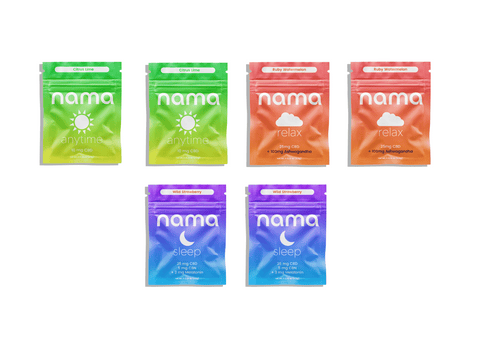
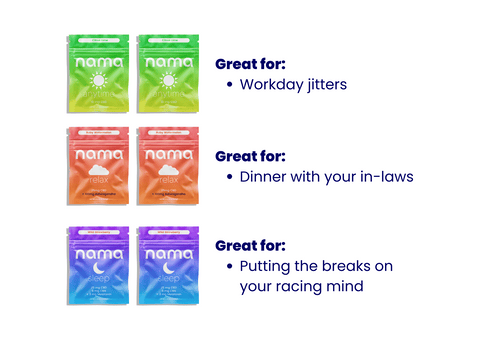
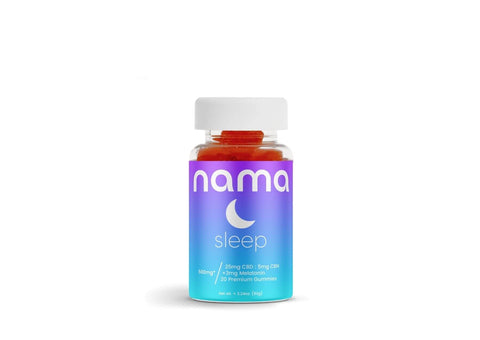
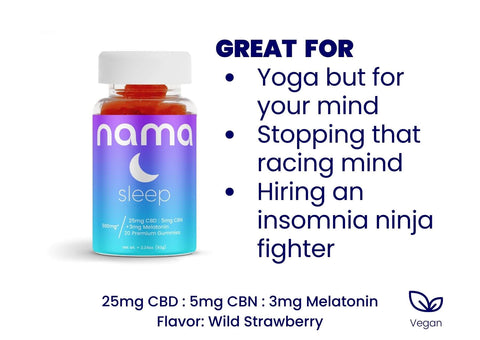
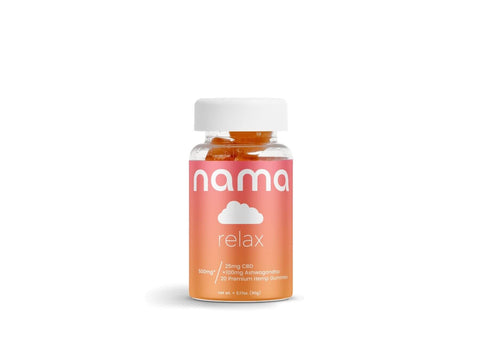
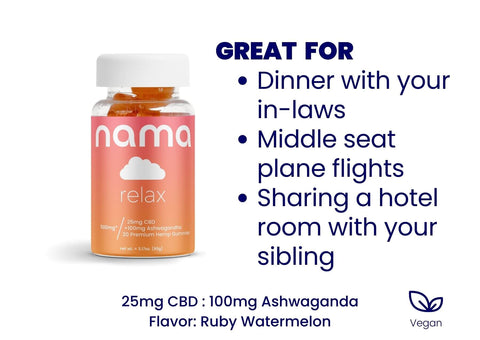
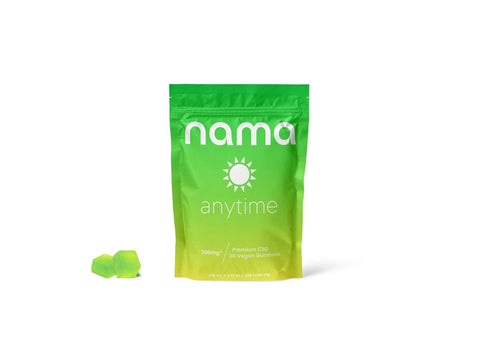
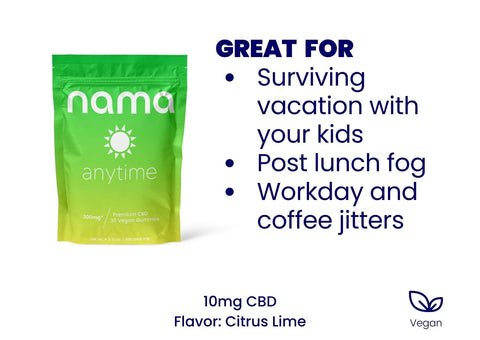
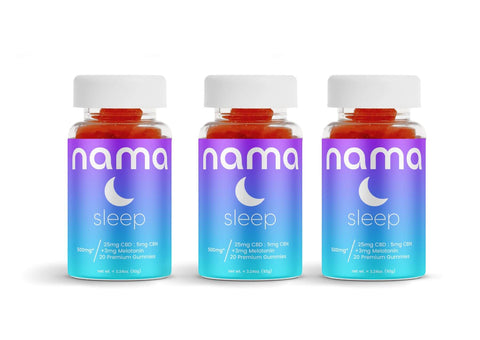
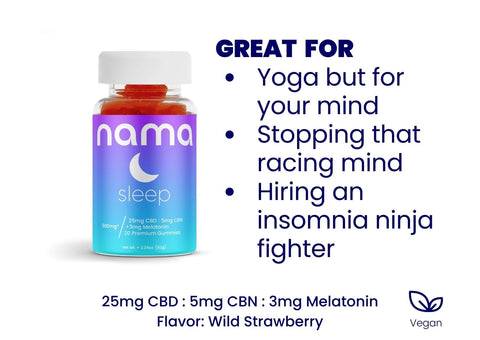
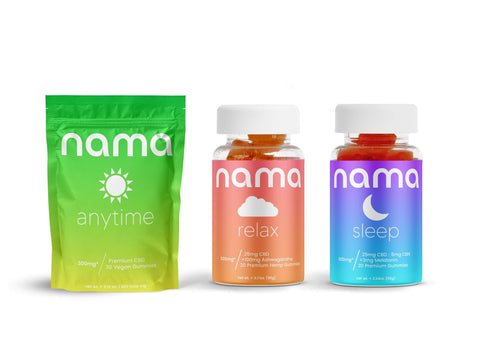
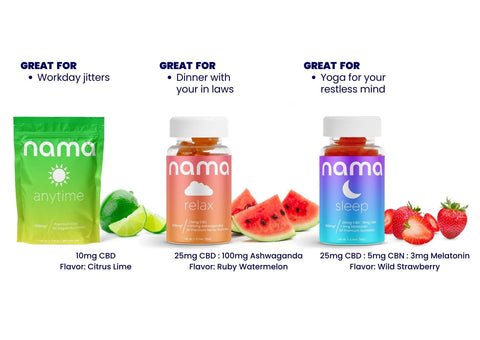
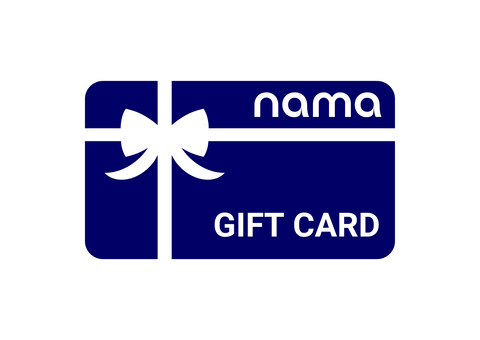







![Buzz Packs™ [THC and CBD Powder Drink Mix]](http://www.namacbd.com/cdn/shop/files/nama_buzz_packs_thc_drink_pack_white_background.png?v=1741884660&width=480)
![Buzz Packs™ [THC and CBD Powder Drink Mix]](http://www.namacbd.com/cdn/shop/files/Buzz_Packs_Label.png?v=1741884660&width=480)




![Buzz Drops™ [THC Drink Drops]](http://www.namacbd.com/cdn/shop/files/nama_thc_buzz_drops.png?v=1711412866&width=480)
![Buzz Drops™ [THC Drink Drops]](http://www.namacbd.com/cdn/shop/files/buzz-drop-wine-comparison.png?v=1736882023&width=480)


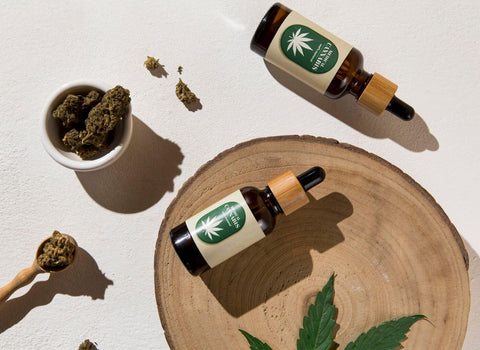
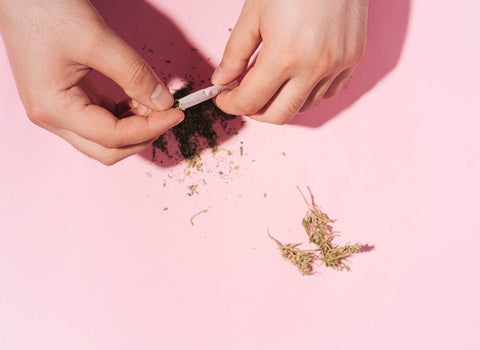


Comments (0)
There are no comments for this article. Be the first one to leave a message!